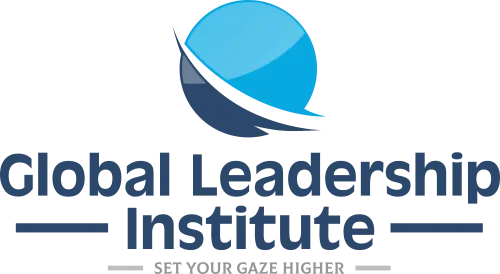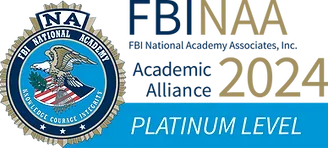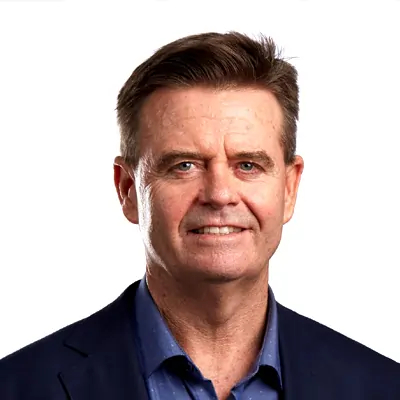PURPOSE
This policy outlines how Global Leadership Institute (GLI) will ensure that staff develop the necessary skills, knowledge, attitudes and behaviours for the Institute to meet its vision, mission and strategic objectives, while also supporting the individual career progression and aspirations of GLI staff.
PRINCIPLES
GLI is committed to an ongoing cycle of staff professional development. This includes:
· understanding that it is important to develop and build on the knowledge and capabilities of its staff to provide a supportive and excellent working environment;
· understanding that it must have a process that is fair, respectful of diversity, inclusive and promote equitable access to all staff;
· recognising the need to provide GLI staff with appropriate support, time and encouragement to undertake professional development and inductions;
· recognising that GLI staff need to be provided with opportunities to develop knowledge, skills and capabilities that will ensure the achievement of strategic goals, contribute to the achievement of individual aspirations and achieve the required legislative and professional requirements;
· expecting that staff will be proactive and take responsibility for their own professional development and strive to achieve their full potential.
Scope
All staff
Key Stakeholder
All staff and students
Proceedure
The HR Manager and the relevant delegated supervisors identify development needs primarily through planning, development and review.
IDENTIFYING DEVELOPMENT NEEDS
· A staff member’s learning and development needs are primarily identified through the performance cycle and are captured in the staff member’s Performance, Development and Review Plan.
· Learning and development needs can relate to technical or behavioural capabilities required for the staff member’s current role or future career ambitions.
· Executive Management team will analyse all staff members’ development objectives and activities in their Performance, Development and Review Plan to inform design and delivery of professional development activities across the Institute that support the Institute’s strategic and business planning priorities;
· Learning, Teaching and Curriculum Committee will oversee professional development related to higher education learning and teaching.
CRITERIA FOR APPROVING PROFESSIONAL DEVELOPMENT ACTIVITIES
The professional development activity must:
· be relevant to the staff member’s current role or to the functions they may reasonably be expected to perform;
· match and support the staff member’s capability;
· addresses identified needs or support organisational initiatives;
· be a suitable investment, considering:
– available funds
– other staff needs
– other cost-effective ways to meet the developmental need (on the job learning and internal development activities should be considered before exploring external developmental activities);
· be transferable to the workplace.
FINANCIAL SUPPORT
· GLI may provide financial support to staff members undertaking professional development. This is a discretionary investment on the part of the Institute and is not an entitlement.
· A request must be made in writing to the Academic Dean for any financial support.
· If the Academic Dean deems it fit to provide financial support, the application is then forwarded to the President for approval along with the reasoning of merit provided by the Academic Dean.
· Part-time staff may only be reimbursed on a pro-rata basis as determined by their fraction of employment (e.g. part-time staff member employed as a 0.5 full-time equivalent will be reimbursed 50% of the applicable reimbursement rate).
TIME RELEASE AND PROFESSIONAL DEVELOPMENT LEAVE
Time release should be considered in conjunction with the requirements of the work unit. Before approving a staff member’s time release or professional development leave, managers should consider all other approved leave.
CAREER DEVELOPMENT
The Institute encourages all staff to take responsibility for their own career development. The Institute’s primary focus is on assisting staff members to build competence in their current role and aims to provide staff with the opportunities to achieve their career aspirations.
The supervisor plays a key role in the staff member’s career development by:
· setting performance and behavioural expectations (what and how);
· identifying development needs;
· providing regular feedback on the staff member’s performance and development;
· encouraging in the support and development of scholarly activity.
EXCLUSIONS
The policy is not retrospective. Staff members pursuing professional development activity at their own expense are not eligible for retrospective support. Some activities may be restricted to certain classifications of staff.
PROFESSIONAL DEVELOPMENT OPTIONS
Professional development opportunities may include:
· on-the-job learning:
– project work, job rotation or shadowing;
– coaching and mentoring;
– secondment i.e., temporary transfer of a GLI staff member to another position or another organisation, higher duties and short-term acting arrangements;
– staff exchange;
– self-study, e.g. books, online learning, DVDs;
– feedback.
· Formal training:
– seminars and conferences;
– open program, leadership programs and in-house training;
– short courses.
· Formal study:
– doctorate, postgraduate or undergraduate degree;
– diploma, certificate;
– Certificate IV in Training and Assessment;
– Graduate Certificate in Tertiary Teaching and Learning;
– Master of Tertiary Education Management.
· practical forms of training and learning:
– industry placement or release;
– study tour;
– professional memberships or memberships of committees;
– fellowships or scholarships.
· Compulsory training:
– induction
– Equal Opportunities and Occupational Health and Safety training
– privacy training
– first aid training for OHS representatives
· undertaking research:
– research at another Institute of Higher Education, university or research organisation;
– research in the field;
– preparing research results for presentation and publication.





